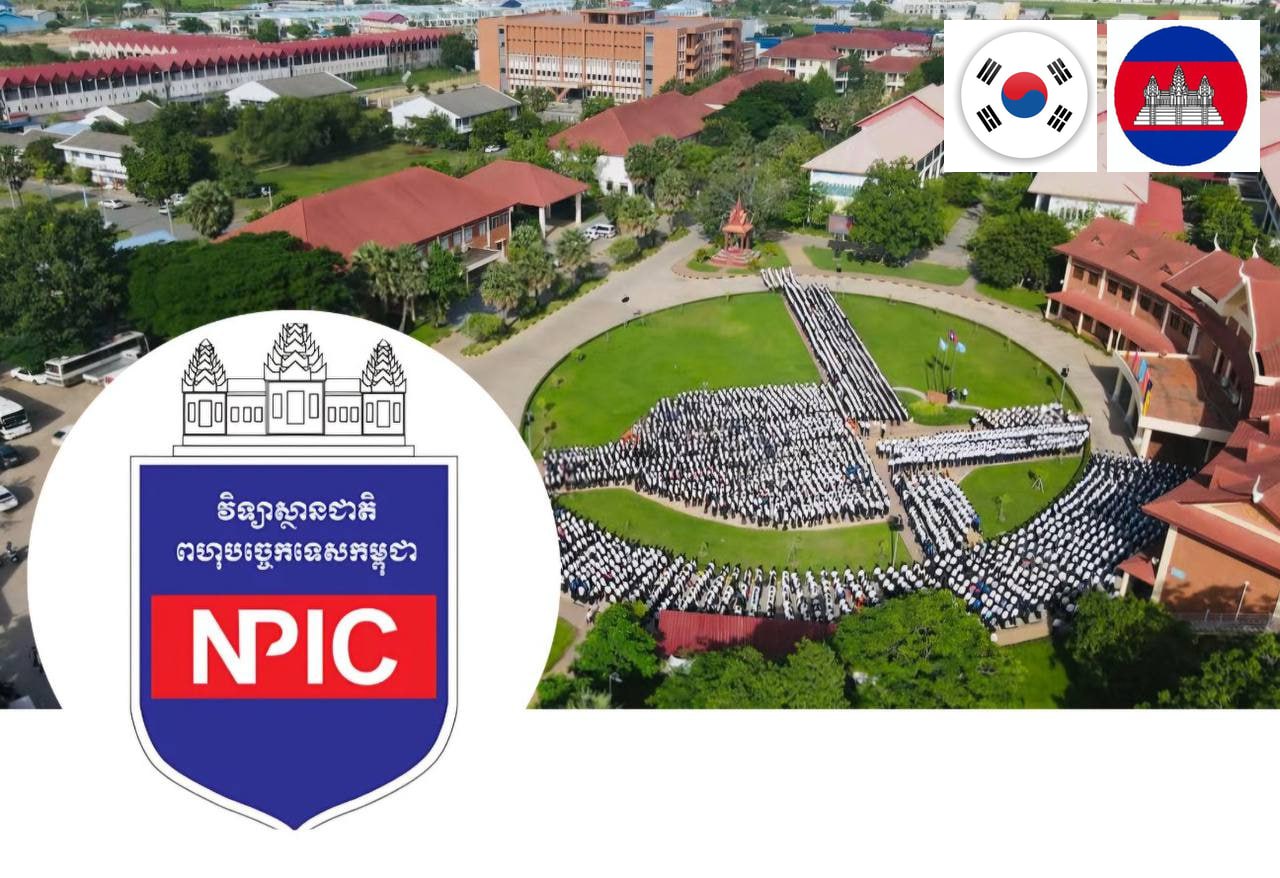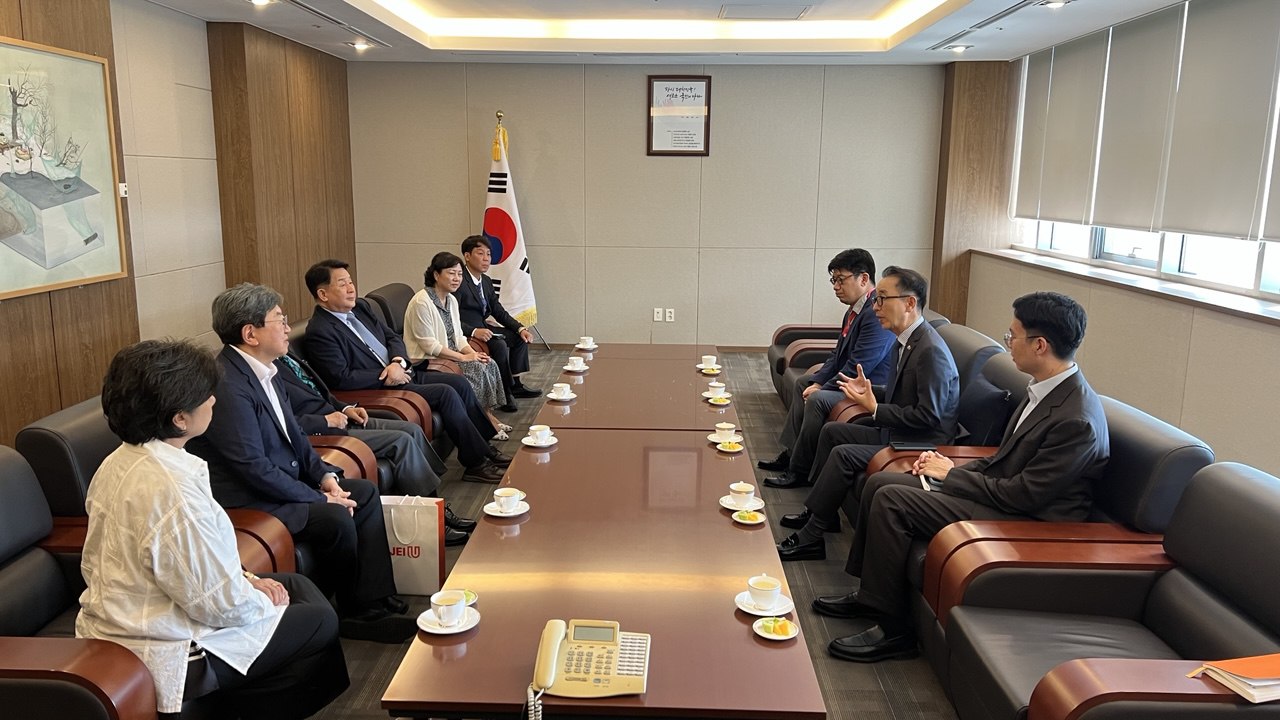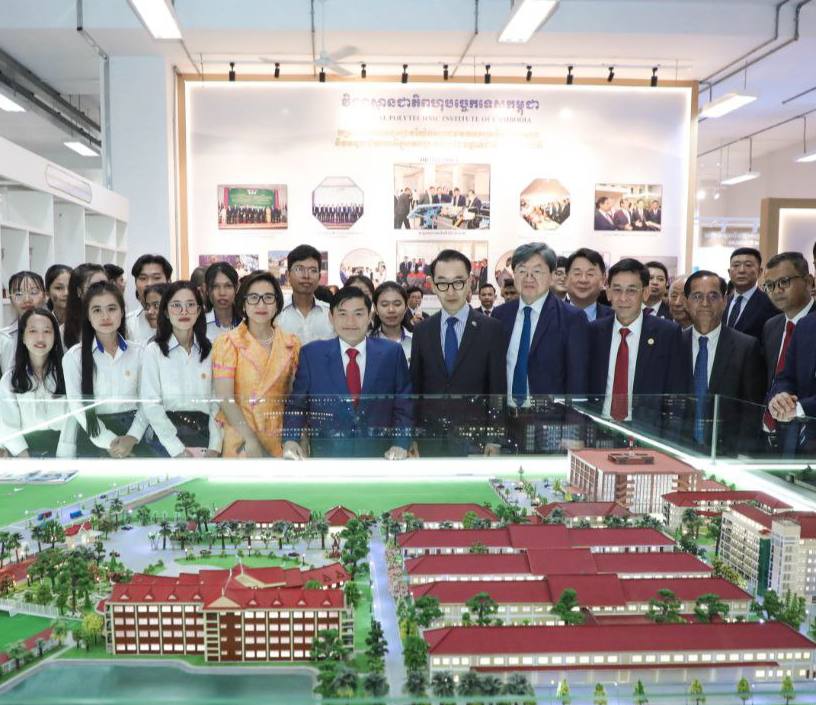NPIC turns 20: A Legacy Born from the Strong partnership Between Cambodia and Republic of Korea
- DATE
- 2025-05-23
NPIC turns 20: A Legacy Born from the Strong partnership
Between Cambodia and Republic of Korea
A young South Korean and a young Cambodian met in Cambodia and fell in love. From that bond, a new life was born. The child grew up with care, support, and vision. Now, 20 years later, that child has become a capable and promising young adult.
That child is the National Polytechnic Institute of Cambodia (NPIC). Established by the Royal Government of Cambodia with support from the Republic of Korea, NPIC has grown into a leading institution in education and vocational training, now home to more than 7,500 students who are gaining the skills needed to shape their and their country’s futures. At 20 years old, NPIC has already laid a solid foundation for Cambodia’s industrial development. Looking ahead, it is poised to play a pivotal role in driving even greater progress for the Cambodian economy over the next two decades.
On May 12, H.E. Park Jung-Wook, Ambassador of the Republic of Korea (ROK) to Cambodia, attended the celebration of the 20th Anniversary of the National Polytechnic Institute of Cambodia (NPIC). NPIC, the largest polytechnic institute in Cambodia, was established in 2005 with support from South Korea’s Economic Development Cooperation Fund (EDCF).
During the event, H.E. Heng Sour, Minister of Labor and Vocational Training (MLVT), praised NPIC’s accomplishments over the past two decades and expressed his deep gratitude to the Government of the Republic of Korea for its unwavering support since the institute’s inception. H.E. Bun Phearin, President of the NPIC, also extended his thanks to many Korean educators and experts who have contributed to NPIC’s foundation and growth, emphasizing that the institute’s achievements would not have been possible without Korea’s support.
NPIC has been a cornerstone of human resource development in Cambodia and a symbol of successful cooperation between Cambodia and Korea. In his congratulatory remarks, Ambassador Park commended the Royal Government of Cambodia for its strong policy support, and acknowledged the dedication of the faculty and students who have driven the NPIC’s progress over the years.
Since its establishment in 2005 through EDCF funding, NPIC and the Korean government have maintained close cooperation, including through the dispatch of volunteer teaching staff and the implementation of training programs for young students under the age of 24. From 2023 through 2027, the Korea International Cooperation Agency (KOICA) is conducting the Project for Building Capacity and Establishing Enabling Environment in ICT Majors of TVET in Cambodia (USD 8 million), which is creating opportunities for NPIC students to acquire practical ICT skills that are in demand in the field.
Ambassador Park also emphasized the importance of continued partnership between NPIC and the Republic of Korea, as NPIC is well-positioned to play a key role in deepening Cambodia-Korea cooperation. “Amid deepening uncertainties in global trade and the world economy, nurturing human resource in Cambodia through bilateral cooperation as Strategic Partners is both mutually beneficial and highly significant,” he said.
Dr. Lee Nam-sik, former President of Jeonju University who contributed to the foundation of NPIC two decades ago, fondly reminisced about the time he worked alongside the Cambodian people toward the shared goal of establishing the institute, and expressed his pride in witnessing the remarkable development of NPIC today.
Starting next year, the Korean government plans to launch a KOICA project valued at USD 9.5 million, aimed at providing infrastructure, capacity building, and training programs for courses in welding, machinery and construction. The project aims to elevate the standard of technical education and training in Cambodia to align with global industrial benchmarks.





